South Korean Deputy Foreign Minister Heading To Iran Vienna Talks
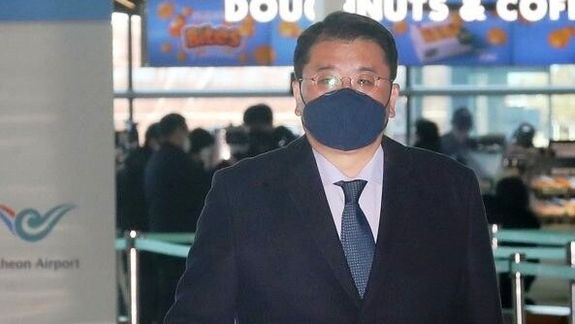
South Korean Vice Foreign Minister Choi Jong-kun has left for Vienna to meet the representatives of Iran and other counties taking part in talks to revive the 2015 nuclear agreement.

South Korean Vice Foreign Minister Choi Jong-kun has left for Vienna to meet the representatives of Iran and other counties taking part in talks to revive the 2015 nuclear agreement.
According to the Yonhap news agency on Tuesday, the South Korean official will hold meetings with the negotiating parties until Sunday.
South Korea is not directly involved in the talks to revive the 2015 the Joint Comprehensive Plan of Actions (JCPOA), but Seoul has been exchanging views about the Vienna talks because some of Iran’s funds are blocked in its banks because of United States sanctions.
Two South Korean banks hold $7 billion of Iran’s funds from the time when Seoul was purchasing oil from Tehran before full US sanctions on Iran’s crude exports were imposed in May 2019.
In an interview in late December, South Korean ambassador in Tehran Yun Kang-hyeo said US sanctions have harmedhis country’s economy.
Yun told the Iranian Labour News Agency (ILNA) that his country had suffered more than any − other than Iran itself − from ‘maximum pressure,’ under which the US threatens punitive action against anyone buying Iran’s oil or dealing with its financial sector.
US Special Envoy for Iran also held a meeting with the South Korean vice foreign minister in October to discuss cooperation over negotiations to restore the nuclear deal.
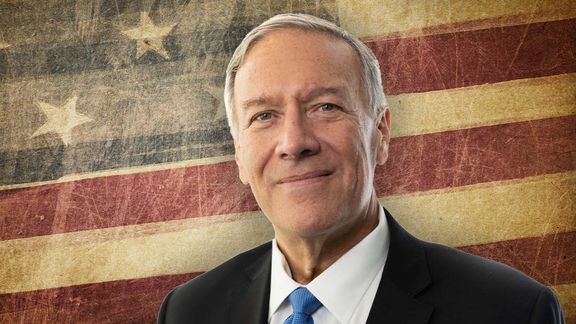
While Iran is repeating threats of retribution and legal actions against those involved in the killing of Qasem Soleimani, former American officials are defending the Trump administration action.
In a tweet on Tuesday, Mike Pompeo, the former CIA director, and secretary of state under Donald Trump, defended the operation to kill Soleimani, saying that it was a legal military action to save the lives of Americans.
He added that Soleimani was actively plotting against the US, and urged the current administration to keep all Americans safe against the threats from the Islamic Republic.
His remarks echoed a post by the former US ambassador to the United Nations, Nikki Haley, who called Soleimani the world’s deadliest terrorist.
She claimed that the world is a safer place now because of Trump’s decision.
After the assassination January 2020, the incumbent US president stated that Soleimani deserved to be brought to justice for his crimes against American troops and thousands of innocents throughout the region as he supported terror and sowed chaos. Current President Joe Biden, however, called it a hugely escalatory movethat would prompt more attacks by Iran in the future.
Soleimani was killed in a United States drone attack, ordered by former president Trump, as he arrived at Baghdad airport from Syria. He was Iran’s top military and intelligence operator in the Middle East, organizing proxy forces.
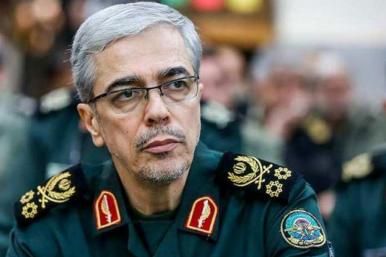
Iran’s armed forces chief of staff in an implicit threat said Tuesday that wherever there is a trace of Gen. Qasem Soleimani “things will happen” to weaken the United States and “Zionists”.
General Mohammad Bagheri, who was speaking at a gathering on the second anniversary of Soleimani’s targeted killing by the US, said, “After Gen. Soleimani’s martyrdom we witnessed how the Americans escaped from Afghanistan in humiliation and were not even able to evacuate their allies and spies.”
Bagheri added that the US is “struggling to deceptively remain in Iraq”, but they will not succeed. The Americans will also be forced to leave Syria, he said and added, “Wherever there is a trace of martyr Soleimani things happen, and we will witness the weakening of the Zionists and the Americans, thanks to the blood Soleimani shed.”
The chief of staff praised Soleimani’s role in expanding the “resistance front”, a term used by Tehran to refer to its network of proxies and allies in the region. He emphasized that before Soleimani became the commander of the Qods Force, Iran’s proxy groups did not have “even one hundredth” of their current capabilities.
Bagheri insisted that Soleimani was a soldier for Supreme Leader Ali Khamenei and carried out his orders to create forces that would weaken Israel.
Soleimani was killed by a US drone strike on January 3, 2020.
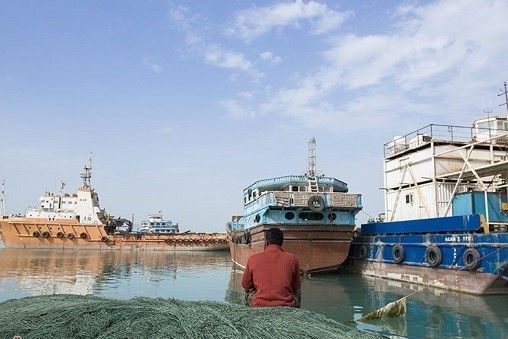
A new investigative report has detailed Iran’s large diesel smuggling network, revealing the role of the Revolutionary Guard and private shipping companies in the illicit trade.
The Washington Post uncovered that ships anchored in the Persian Gulf outside the territorial limits of the United Arab Emirates to evade detection by coast guards and wait at night for small fishing boats that deliver the smuggled Iranian fuel, a process that can take four to five nights until the tankers get their maximum load.
There are many reports on Iran’s secret network of fuel smuggling but the new investigative report offers a fresh inside look thanks to several Indian nationals who were employed by UAE-based shipping companies, which trafficked the diesel to Somalia or other destinations.
In addition to the clandestine nighttime transfers, Iranian diesel bound for international markets is also carried on tankers setting sail from Iran with the origin of the shipment forged in the Emirati port of Sharjah to make it look as it came from Iraq or the UAE.
The report said that this was a very profitable trade even before the United States left the 2015 nuclear deal and imposed sanctions on Iran. Gasoline and especially diesel are extremely cheap in Iran because of heavy government fuel subsidies. One gallon of diesel is just 4 US cents.
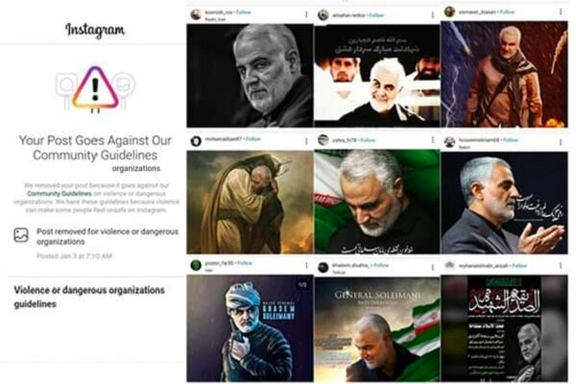
Iran has written to Mark Zuckerberg, CEO of Meta Inc. that controls Facebook and Instagram, asking why the platforms had removed posts about general Qasem Soleimani.
In a letter Reza Fazel, legal director at the telecommunications ministry, called on Zuckerberg as chief executive of Meta Platforms "to end extensive censorship" over Soleimani, who was killed alongside nine others by a United States drone attack in Baghdad on January 3, 2000.
The letter coincided with the anniversary of the general’s death, who was Iran’s top military and intelligence operator outside its borders and was in charge of supporting and organizing militant proxy forces throughout the Middle East.
A statement from the telecommunications ministry said copies of the letter had been sent to Adam Mosseri, head of Instagram, and Jessica Rosenworcel, chairwoman of the US Federal Communications Commission.
Iran itself has one of the world’s worse internet censorships, with tens of thousands of websites blocked since the early 2000s and social media platforms such as Twitter and Facebook banned.
In April 2019, Instagram deleted accounts of many current and previous Iranian Revolutionary Guards (IRGC) commanders, including Soleimani, after the US designated the IRGC a ‘foreign terrorist organization.’ When Soleimani was killed, Instagram removed photos and texts posted in praise of the Qods (Quds) Force commander.
The ministry’s letter called Soleimani "a hero in the fight against terrorism" and "eradicator of Daesh [the Arabic acronym for Isis] terrorist group.” It claimed that the deletions did not conform to any international norm and that Instagram should “respect the millions of users who hold dear this hero of the fight against terrorism, and put an end to this extensive censorship.”
The letter suggested the move had “been part of the Trump administration's psychological war against Iran," referring to former president Donald Trump, who took the decision to kill Soleimani and those travelling with him. Fazel demanded an explanation for the continuing ‘censorship’ and called for the restoration of suspended accounts and deleted posts.
President Ebrahim Raisi (Raeesi) said Monday in a televised speech that unless Trump and former secretary of state Mike Pompeo were put in trial in a “fair court” for Soleimani’s killing – which then United Nations special rapporteur Agnes Callamard dubbed unlawful – “Muslims will take our martyr's revenge.”
Supreme Leader Ali Khamenei said Saturday that “Trump and others like him” would “be forgotten and lost in the dustbin of history, albeit after paying for their crimes in this world."
Instagram, the only major social network not blocked, has around 45 million users in Iran, with a recent surveyby the Iranian Students Polling Agency (ISPA) finding 45 percent of Iranians aged 19 or older had accounts. Facebook , which is blocked in Iran, has millions of subscribers who use anti-filtering software and VPNs.
Iran’s Parliament dominated by hardliners is reviewing a bill to further restrict internet access by requiring foreign social networks and messaging applications to agree to rules set by a regulator. Those not complying would remain blocked.

Lebanese Prime Minister Najib Mikati Monday rebuked the Iran-backed Hezbollah for criticizing Saudi Arabia, saying it did not serve the national interest or represent the country's official stance.
Saudi Arabia and several other Gulf Arab states withdrew ambassadors and expelled Lebanese envoys in October and November over what the kingdom later said was arch-foe Hezbollah's dominance of the Lebanese state.
In a speech, Hezbollah leader Sayyed Hasan Nasrallah accused Saudi Arabia's king of terrorism on Monday.
"King, the terrorist is the one who has exported ... Daeshi ideology to the world, and it is you," Nasrallah said, using an acronym for Islamic State Sunni terror group.
Mikati responded in a statement, distancing himself from the Hezbollah leader.
"What ... Nasrallah said about the Kingdom of Saudi Arabia this evening does not represent the position of the Lebanese government and most Lebanese. It is not in Lebanon's interest to offend any Arab country, especially the Gulf states.
"For God's sake, have mercy on Lebanon and the Lebanese people and stop the hateful sectarian and political rhetoric."
Lebanese officials including President Michel Aoun, a Hezbollah ally, and Mikati have called for dialogue with Saudi Arabia to resolve the diplomatic crisis, which has piled onto an economic meltdown now in its third year.
Report by Reuters